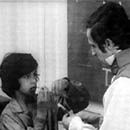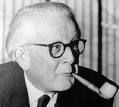![]()
![]()
![]()
Use LEFT and RIGHT arrow keys to navigate between flashcards;
Use UP and DOWN arrow keys to flip the card;
H to show hint;
A reads text to speech;
32 Cards in this Set
- Front
- Back
- 3rd side (hint)
|
What is a child?
|
Lots of ways to define a child
- UNCRC - anyone under 18 - childhood means different things to different people - societies make laws defining childhood e.g. voting rights, leaving school |
|
|
|
Examples of cultural differences of when life begins
|
When life begins - Christians at conception; Waiwai 3 yrs old soul becomes complete.
Japanese culture - children seen as extension of parents. |
p.52
|
|
|
What is a scientific approach to childhood?
|
seeks universal truths
knowledge objective experiments: theory-prediction-testing systematic research observations children seen as immature, small people, developing & learning Piaget, Kohlberg, Gessell |
|
|
|
Examples of observational & experimental studies
|
Charles DARWIN - observed & experimented on baby son - 1840's
Arnold GESSEL - observation dome, USA 1911 John BOWLBY - observed children deprived of mother (orphans/hospitalized) 1930's |
p. 104
|
|

Historical roots of developmental approach to childhood
|
DR ITARD's experiments on 'WILD BOY of AVEYRON' - tried to reverse affects of social deprivation
|
p. 86
|
|
|
Scientific approach - Piaget (early 20C)
|
Developmental psychologist
universal stages of cognitive development sequential progression children think differently to adults |
|
|
|
What are Piaget's stages of cognitive development?
(hint: Some People Can Fly) |
Sensori Motor 0-2
Pre-operational 3-6 Concrete-operational 7-11 Formal-operational 12+ |
link to Foundation Stage early childhood education England - based on linear stages of learning/development, sequential.
link to - play develops through stages: S - solitary, repetition of new skills P - use objects symbolically, make believe C - play with others, role-play with rules |
|

1970's experiments that challenge PIAGET's theory
|
1. Conservation of liquids
2 beakers filled to same level, 1 is poured into another different shaped beaker - is amount more, less or same? 2. 3 mountains task Two intersecting 'walls'. Figures of boy & policemen placed at different points, child asked to hide boy from both policemen. |
Different results to Piaget's because PRESENTED IN A WAY THAT WAS MORE RELEVANT TO CHILDREN p. 111
|
|
|
Scientific approach - Kohlberg (1971)
|
Piaget as starting point
moral beliefs universal moral development 6 sequential stages variation between ages & stages used observation & experiments asking children q's about moral dilemmas |
|
|
|
What are Kohlberg's stages of moral development?
|
Stage 1 wrong things are those that are punished
Stage 2 good and bad are about satifying your own needs Stage 3 being good is looking after those you care about stage 4 being good is about obeying the law stage 5 being good is about forstering the welfare welbeing of others stage 6 being good is defined by your own conscience |
criticisms - saw moral beliefs as universal
put western beliefs onto all children |
|
|
Scientific approach - Gessell (early 20C)
|
founded Yale clinic of Child Development 1911
observation dome data bank of age/stage 'normative summaries' - normal behaviour grouped under 4 broad themes |
|
|
|
What are the headings/themes of Gessell's normative summaries?
Give example of behaviour for 4 month old baby. (hint: LAMPS) |
Language - laughs
Adaptive behaviour - notices large objects Motor - lifts head Personal-Social - turns head to voice |
|
|
|
ARGUMENT AGAINST Universal Stage Theory (generalised progression through stages)
|
Children's reasoning varies according to way task is presented & way it is understood.
|
p. 112
|
|
|
What is a social constructionist approach to childhood?
|
knowledge constructed
no universal truths based on human activity nothing unbiased interpretation practical & moral consequences of alternative 'realities' Vygotsky |
|
|

PHILIPE ARIES
Who is he? |
Pioneered idea that childhood is a social construction in his book 'Centuries of Childhood' 1962
|
p.58
|
|
|
PHILIPE ARIES THEORIES
|
Claimed childhood invention of 16-17th century - did not exist before then.
|
p. 58
|
|
|
PHILIPE ARIES - CRITICISM OF THEORY
|
Relied too heavily on paintings, which did not take into account lives of children - instead used symbolism.
Ignored other sources e.g. medical books on children's illnesses. Legal system set ages for criminal responsibility. Teachings of the Church on role of children. |
p. 59
|
|
|
WHY developmental research & theories are a SOCIAL CONSTRUCTION of childhood
|
Charting children's development relating to age is distinctive to modern societies. Children are constructed as 'in a process of becoming' rather than persons in their own right.
|
p. 120
|
|
|
Social constructionist - Vygotsky
|
contemporary of Piaget
development between children not within learn by socially constructing knowledge with a more able other not linear stages not universal, natural social & cultural 'historical child' not 'eternal child' development stages based on western values |
link to - Reggio Emilia early childhood education in Italy.
|
|
|
Describe the term 'discourse'.
|
interconnected viewpoints
assumptions ideas "rooted in a historical, social & political context" (Montogemery, 2003) shape how people think & speak change as society changes co-exist can contradict/challenge eachother affect how children are treated different discourse of childhood from religion, philosphy, law, etc. central to social constructionist approach |
|
|
|
Describe the Romantic discourse of childhood.
|
children born inherently good
virtuous need protecting corrupted by adult oppression children not responsible if bad advocate - 18C philosopher Rousseau |
|
|
|
Examples of children represented from a Romantic discourse of childhood.
|
Peugeot TV ad - girl rescued by man as 'hero', she needing protecting from various hazards.
Ribbens (1994) study of mothers and their children. Category - 'children as innocents' |
|
|
|
How can a Romantic discourse of childhood affect the treatment of children?
|
young offenders - 'welfare' model
rehab not punishment blame social factors not child therapeutic approach secure units not prison media - censoring what children watch/internet/computer games/books etc, to protect them from 'corruption' |
link to - children's play seen as normal and healthy
link to - Romantic constructions of playful child used to support campaigns against child labour during industrialisation late19C/early 20C and in the South now. link to - literature, books about innocent adventures, etc. |
|
|
Describe a puritan discourse of childhood.
|
children born inherently wicked
original sin emphasis post Reformation need teaching right from wrong advocate - Hobbes - children unruly but can be enlightened through teaching |
|
|
|
Examples of representations of children from a puritan discourse.
|
film 'Leon'
pre-teen girl's friendship with adult male assassin sexualised & violent behaviour due to her inherent wickedness & no adult correcting her Ribbens (1994) study category - "little devils" natural potential to disrupt life, need to be shaped into social order |
|
|
|
Example of puritan discourse affecting treatment of children.
|
young offenders
'justice' model punitive children as least partly responsible for actions |
link to - Asquith, described 'welfare' and 'justice' models, Bulger case
|
|
|
Describe Tabula Rasa discourse of childhood.
|
'blank slate' (latin)
no innate qualities time of becoming children have specific needs shaped by environment & experience adults must provide correct environment need adult control advocate - Locke 17C |
|
|
|
Example of Tabula Rasa discourse affecting treatment of children.
|
young offenders
'welfare' model focus on rehab |
|
|
|
Example of representation of children from Tabula Rasa discourse.
|
film "Leon"
girl seen as corrupted by her upbringing lack of adult control & not provided with good environment |
|
|
|
Describe the discourse of childhood 'Children as Small People'
|
category in Ribben's (1994) study
children's individuality & independence respected differences between adults & children minimised adults still more powerful linked to children's rights influences debates about young offenders |
|
|
|
Describe an applied approach to childhood.
|
focus on practical
care & support socila policy law professional practice can be scientific or social constructionist children's rights used by organisations, institutions, people responsible for welfare |
|
|
|
Ways Western construction of child have been globalised
|
Every country except US & Somalia has signed & ratified the UNCRC agreeing that 'a child means every human under 18 years' PROBLEMATIC - not all societies treat children as children up to that age
Expectations of child development based on Western notions. Ideas that children should not work. PROBLEMATIC - many in South work through necessity & tradition. Aid agencies use images of starving children in Africa, reinforces stereotype of helpless people. |
p. 71
|

